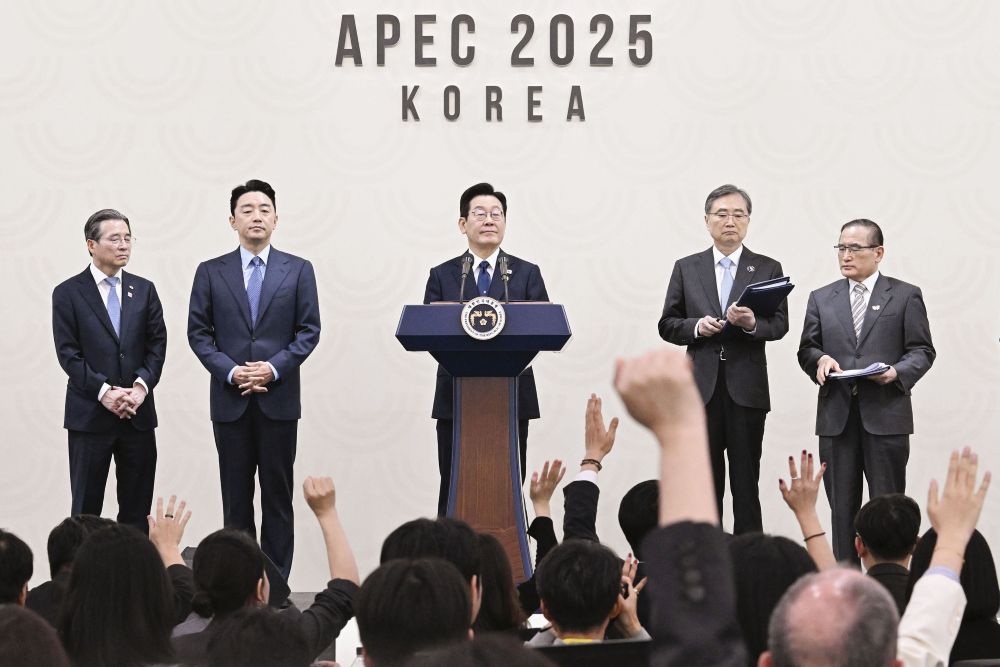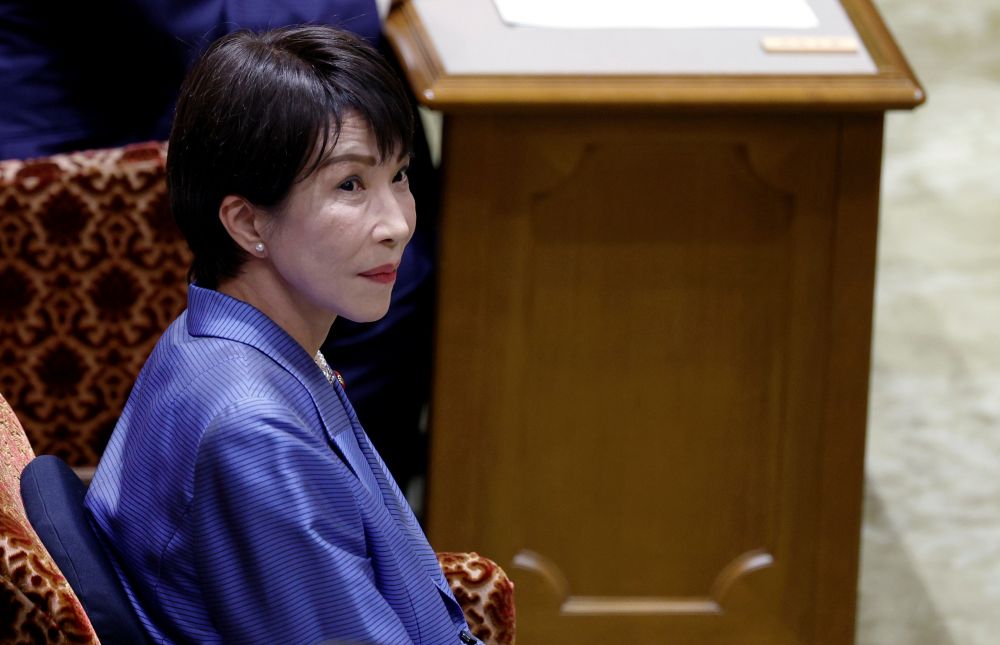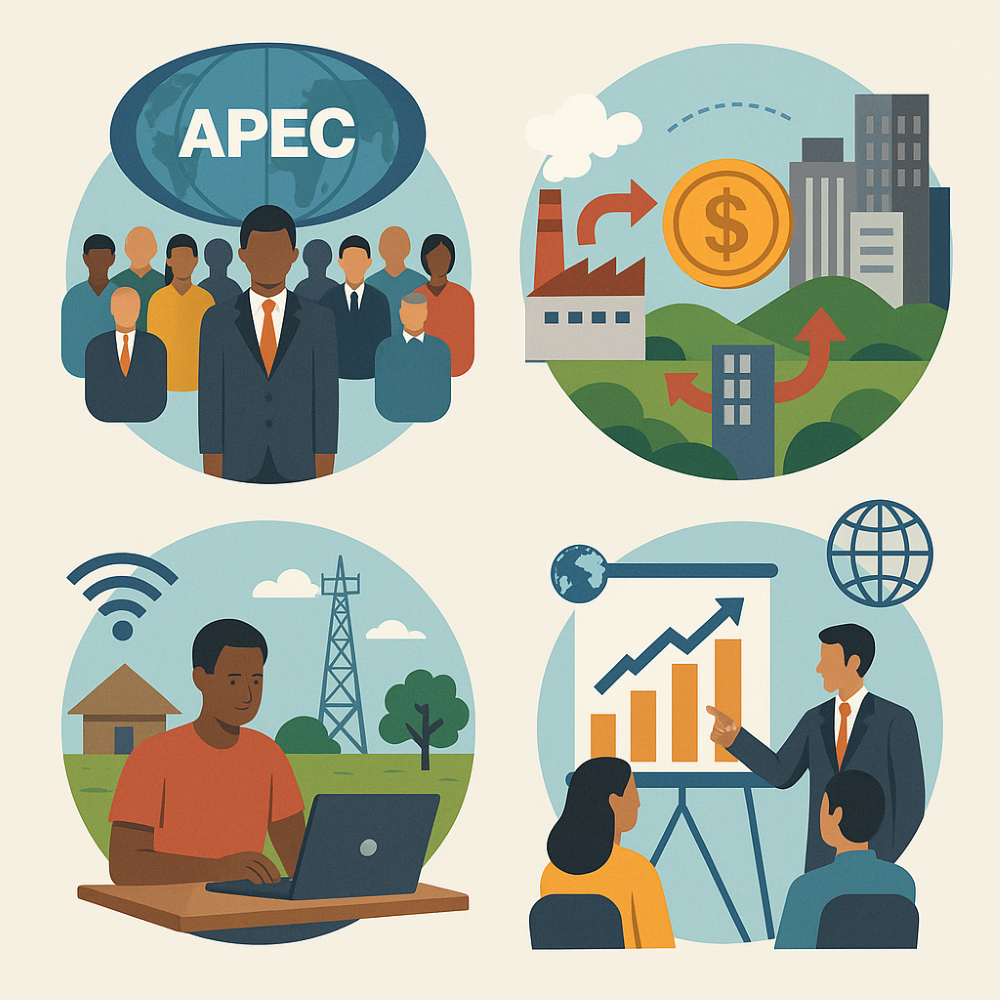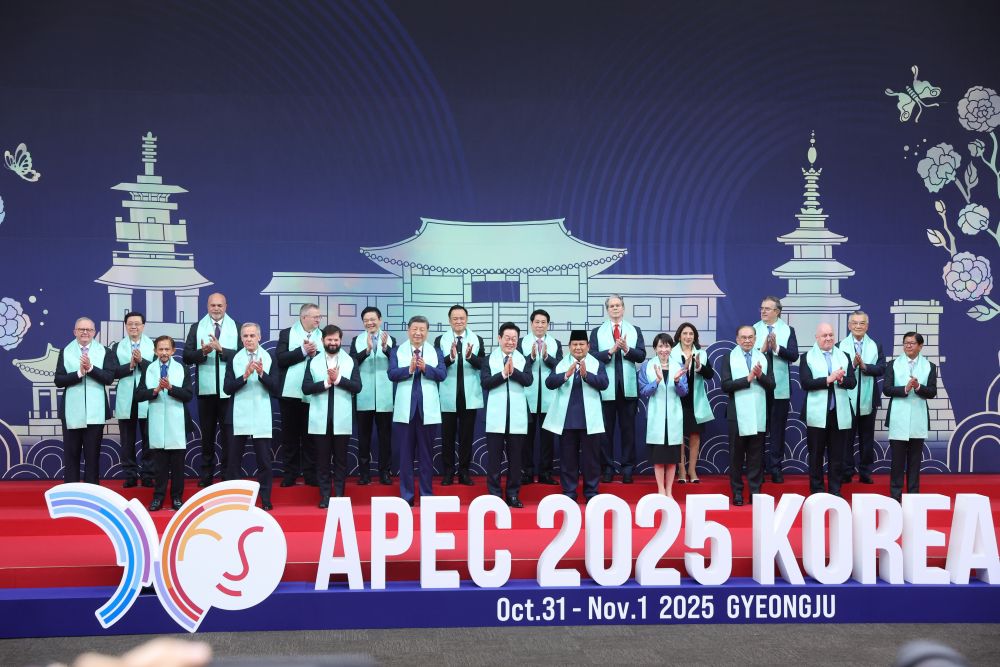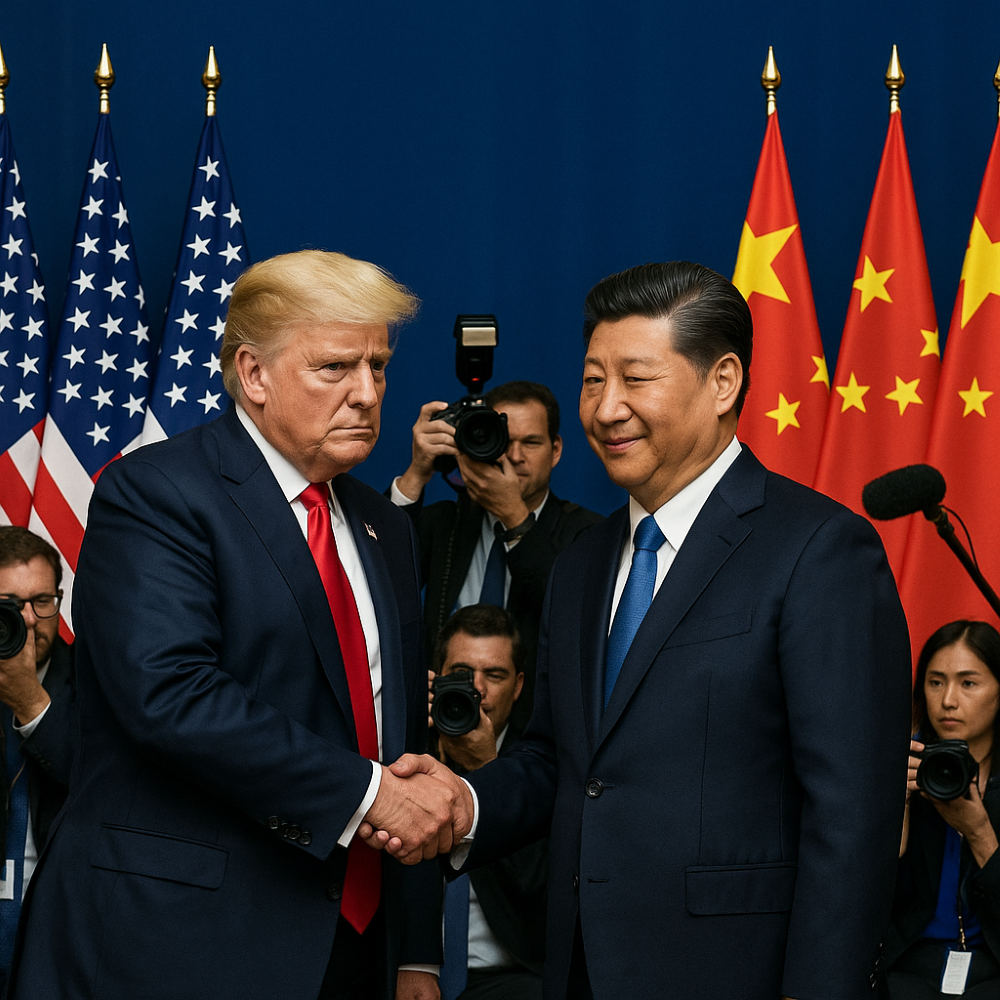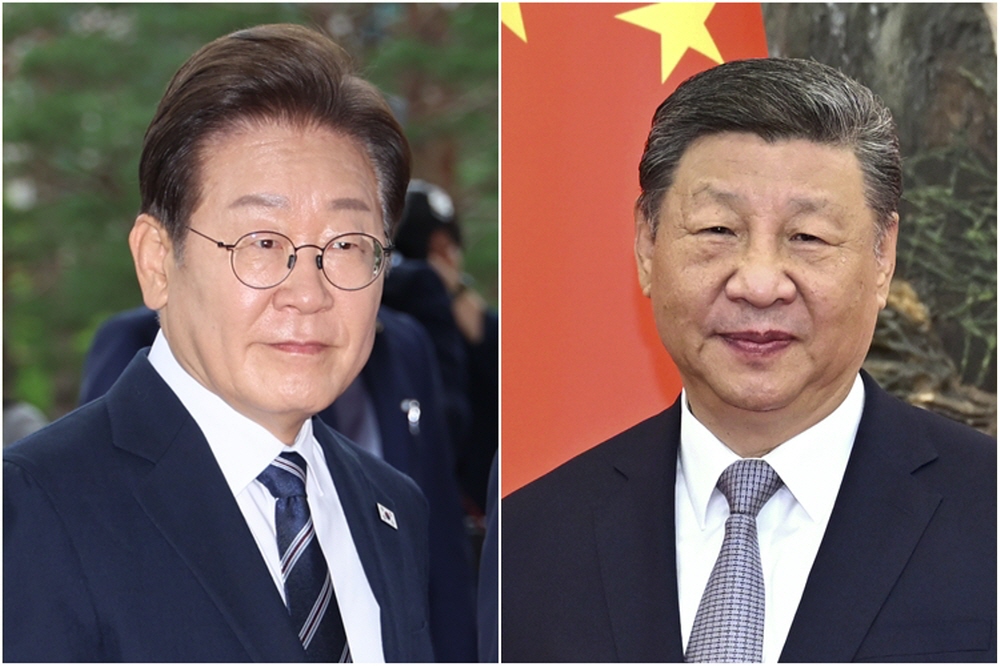
- #South Korea
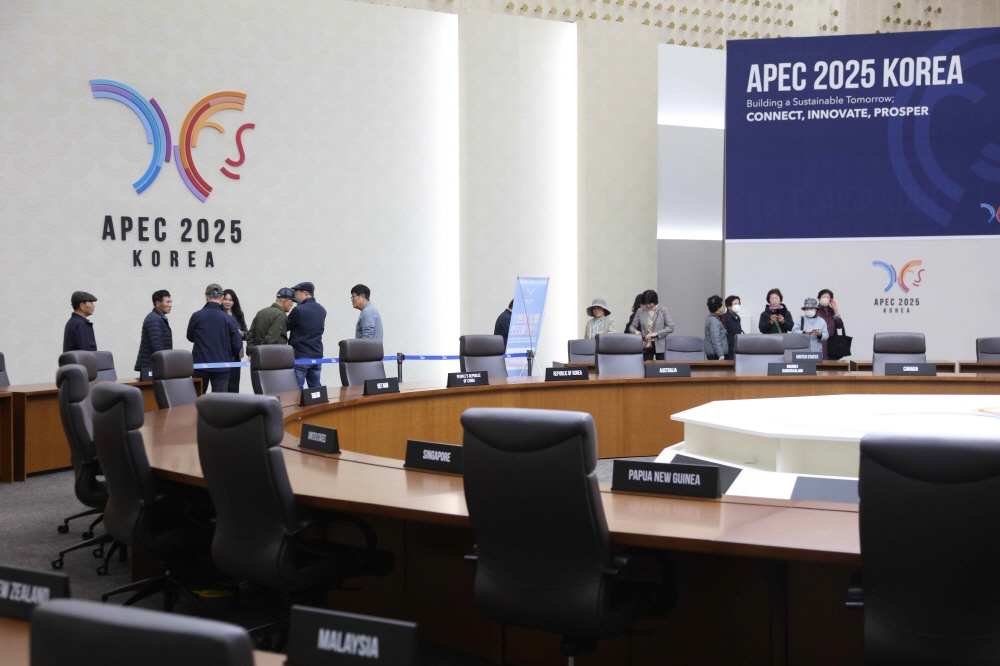
Key Takeaways
- By securing consensus on a
38-point statement, South Korea demonstrated its ability to convene cooperation
amid U.S.–China tensions and global trade fragmentation.
- The summit allowed Seoul
to project leadership on AI and defend multilateral trade norms central to its
development story.
- High-level meetings with the U.S., China, and Japan elevated South Korea’s diplomatic standing despite Trump’s absence from the main forum.
Hosting multilateral diplomatic gatherings is a key pillar of South
Korea’s foreign policy, from the G20 Summit in 2010, UN Peacekeeping
Ministerial in 2021 during the COVID-19 pandemic, to the Summit for Democracy
of 2024. For successive South Korean governments, hosting multilateral
gatherings has been a means to showcase Seoul’s support for multilateralism and
its convening power.
Arguably, the hosting of the APEC 2025 Summit has been South Korea’s
most difficult balancing act with this type of events. After all, hosting a
gathering to promote and support economic cooperation at a time when
multilateral trade is fraying, economic nationalism is rising, and the two
largest economies are engaged in a trade and technology war is no small feat.
In this context, the fact that South Korean officials were able to
drive consensus on a 38-point joint statement emphasising a “commitment” to an
“Asia-Pacific community” should not be underestimated. Leading up to the
summit, there were real concerns that the differences between the United States
and China would prevent consensus on a joint statement. In the end, the joint
statement issued by the APEC ministers had a positive tone that would have
allowed the Lee Jae-myung government to quietly celebrate a diplomatic success.
Particularly important for South Korea was the recognition of its
important role in the area of AI, particularly its hosting of the inaugural
APEC Digital and AI Ministerial Meeting. The Lee government has launched a
National AI Strategy Committee, following in the footsteps of the AI Framework
Act adopted in January of this year and due to take effect in the coming
January. The Lee government has also set the goal for South Korea to become one
of the top three AI global powers, focusing on infrastructure, talent
development, regulation or public-private cooperation. The APEC Summit and
other activities linked to the main event served for the Lee government to
present Seoul’s credentials in this area in front of its Asia-Pacific peers,
helping to make the point that the AI race has other players outside of China
and the United States.
Also relevant for the Lee government was the strong focus of the
APEC joint statement on highlighting the role of the WTO in global trade
governance. The WTO has become severely weakened in recent years due to China’s
protectionist trade policy, the way the United States has turned against the
organisation or the negative perception of India and other developing countries
about its alleged bias towards developed countries. Yet, the WTO and trade
liberalisation in general have been key pillars of South Korea’s successful
development story. This explains why South Korea continues to be one of the
countries arguing for the WTO to continue to play a role in global trade
governance. Therefore, the Lee government was keen to have APEC at least
rhetorically uphold the importance of this institution.
Outside of the joint statement, Seoul was pleased that the APEC
summit served Donald Trump and Xi Jinping to hold their first meeting since the
US president started his second term in January of this year. This was a
diplomatic coup for the Lee government, which can credibly claim that it helped
to create the conditions for the American and Chinese leaders to meet and
de-escalate the tariff and trade war between the two countries—with its
negative effects on South Korea itself, among many other countries.
Furthermore, Lee himself took advantage of the APEC summit to hold
meetings with Trump, Xi and new Japanese leader Takaichi Sanae. The three of
them were meaningful for South Korea. Lee’s meeting with Trump created the
conditions for the two sides to formally announce that the United States
supports South Korea’s development of nuclear-powered submarines, their defence
chiefs will seek to expedite the transfer of wartime operational control of the
ROK Armed Forces, and the US will formally cut tariffs on a range of South
Korean products as a part of a trade and investment deal. As for Lee’s meeting
with Xi, it marked the first visit by the Chinese leader to South Korea since
2014. Even though ties between Seoul and Beijing remain strained, the visit at
least underscored that the two sides are seeking to manage their relationship.
Meanwhile, the meeting between Lee and Takaichi was helpful to underscore that
Seoul and Tokyo seek to continue working together with each other as has been
the case in recent years.
Perhaps South Korea’s biggest failure during the APEC summit was
Trump’s decision to skip the forum. This is not particularly unusual, since
Trump has also decided to skip the upcoming G20 summit in South Africa, barely
stayed a few hours during this year’s NATO summit, and left the June G7 summit
early. Nonetheless, Seoul worked hard behind the scenes to convince Trump to
attend the main APEC meeting. Thus, it was a diplomatic blow to have the US
president decide not to attend.
Overall, in any case, South Korea can be satisfied with its hosting
of the APEC summit. The summit helped Seoul mark its return to the centre of
the international stage following the December martial law declaration fracas.
The Lee government also skilfully used the summit to advance its foreign policy
agenda. It now needs to build on the momentum created by the summit to continue
to show that South Korea is truly back.

Ramon Pacheco Pardo is Professor of International Relations at King's College London and the KF-VUB Korea Chair at the Brussels School of Governance. He is also King's Regional Envoy for East and South East Asia. An expert on Korean affairs, his extensive publications include Korea: A New History of South & North and Shrimp to Whale: South Korea from the Forgotten War to K-Pop. Prof. Pacheco Pardo regularly consults for NATO, the OECD, and various governments, and is a frequent media commentator.
